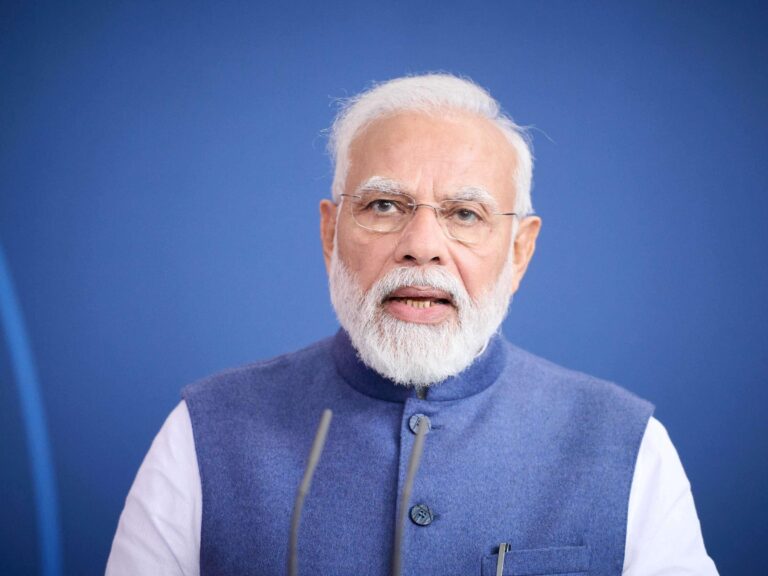India’s Prime Minister Narendra Modi’s decision to attend the upcoming G7 summit in Canada has sparked intense debate among analysts and political commentators. While his presence underscores India’s growing global clout and marks a diplomatic breakthrough amid complex geopolitical dynamics, critics question whether the move constitutes more of a symbolic win than a substantive one. As concerns mount over potential compromises and diplomatic costs, the question arises: is Modi’s acceptance a strategic triumph or a ‘Pyrrhic victory’-a win that comes at too great a price? This article delves into the implications of Modi’s participation in the summit, exploring the multifaceted consequences for India’s international standing and regional diplomacy.
India’s Modi at G7 Summit in Canada Faces Complex Diplomatic Tightrope
India’s Prime Minister Narendra Modi’s attendance at the G7 Summit in Canada, despite the fraught geopolitical landscape, signals a nuanced approach to global diplomacy. While Modi’s presence underscores India’s growing diplomatic clout, it also places New Delhi in a delicate position – balancing between traditional alliances and emerging partnerships. The summit, dominated by critical discussions on global security, climate change, and economic cooperation, tests India’s ability to assert its strategic autonomy without alienating key stakeholders.
The complex dynamics are further compounded by several pressing issues:
- Geopolitical Rivalries: Navigating tensions between Western powers and China without overtly siding.
- Energy and Trade Negotiations: Engaging with G7 economies while protecting India’s economic interests.
- Security Collaborations: Balancing military cooperation with regional security concerns.
| Area | India’s Position | G7 Expectations |
|---|---|---|
| Climate | Commitment to renewable growth | Accelerate net-zero targets |
| Trade | Protect domestic markets | Open trade agreements |
| Security | Promote regional stability | Counter global threats |
Balancing Global Ambitions with Domestic Challenges Amid International Scrutiny
India’s decision to join the G7 summit in Canada marks a significant step in asserting its growing influence on the global stage. However, this diplomatic achievement is shadowed by a complex array of domestic issues and international skepticism. While the invitation symbolizes recognition of India’s economic and geopolitical stature, it also thrusts Prime Minister Narendra Modi into a delicate balancing act: projecting strength abroad without ignoring the pressing socio-economic challenges at home, including inflation, unemployment, and regional disparities. International observers remain cautious, noting that India’s rise is intertwined with persistent internal contradictions that could undermine its global ambitions.
Amid heightened scrutiny, Modi’s participation invites a closer look at the dual pressures confronting India. Externally, allies and critics alike are watching how India navigates divergent interests on climate change, security, and trade. Internally, the government faces escalating expectations to deliver tangible improvements in governance and social welfare. The following table highlights key factors shaping India’s current position:
| Aspect | Opportunities | Risks |
|---|---|---|
| Economic Growth | Access to G7 markets and investment | Income inequality and inflation |
| Geopolitical Influence | Stronger alliances and strategic partnerships | Tensions with regional neighbors |
| Domestic Governance | Improved infrastructure and reforms | Social unrest and political dissent |
- Global integration enhances India’s diplomatic leverage but requires policy cohesion and transparency.
- Managing domestic expectations is vital to sustaining long-term growth and stability.
- International scrutiny pressures India to align its global commitments with human rights and environmental standards.
Strategic Recommendations for India to Leverage G7 Participation Without Compromising Sovereignty
India’s engagement with the G7 must be calibrated carefully to maximize its diplomatic leverage without ceding ground on critical national interests. To this end, New Delhi should prioritize issue-based cooperation where its strategic priorities align, such as climate action, technology innovation, and global health. Emphasizing collaborative frameworks over institutional overdependence will enable India to retain its policy autonomy while benefiting from the G7’s collective influence. Furthermore, cultivating bilateral partnerships within the group, rather than adopting a blanket alignment, can safeguard India’s multipolar foreign policy stance.
Transparency and clear communication with domestic stakeholders are equally vital to avoid perceptions of compromise on sovereignty. Adoption of selective commitments could be bolstered by a framework that distinguishes core national interests from areas open to global cooperation. Below is a simplified roadmap showcasing this approach:
| Approach | Focus Area | Outcome | |||||||||
|---|---|---|---|---|---|---|---|---|---|---|---|
| Selective Engagement | Climate, Tech Innovation | Strategic Influence Without Overcommitment | |||||||||
| Bilateral Deepening | G7 Nations Individually | Customized Partnerships Preserving Autonomy | |||||||||
| Clear Communication | Domestic Certainly! Here’s a continuation and completion of the table row and the paragraph with some suggestions for clarity and completeness:
“`html India’s engagement with the G7 must be calibrated carefully to maximize its diplomatic leverage without ceding ground on critical national interests. To this end, New Delhi should prioritize issue-based cooperation where its strategic priorities align, such as climate action, technology innovation, and global health. Emphasizing collaborative frameworks over institutional overdependence will enable India to retain its policy autonomy while benefiting from the G7’s collective influence. Furthermore, cultivating bilateral partnerships within the group, rather than adopting a blanket alignment, can safeguard India’s multipolar foreign policy stance. Transparency and clear communication with domestic stakeholders are equally vital to avoid perceptions of compromise on sovereignty. Adoption of selective commitments could be bolstered by a framework that distinguishes core national interests from areas open to global cooperation. Below is a simplified roadmap showcasing this approach:
|




